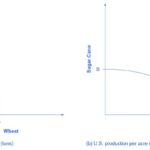The use of personal pronouns like “we” in academic writing, particularly compare and contrast essays, is often a point of contention. While accepted in some disciplines, others, like economics, discourage their use. This article explores the nuances of using pronouns in academic essays and offers guidance for students navigating these varying stylistic expectations.
Pronoun Use in Academic Writing: A Gray Area
While some academic circles accept the use of “we,” particularly in mathematics and scientific writing, it’s not universally embraced. Certain disciplines, such as economics, often prefer a more formal tone that avoids personal pronouns altogether. This discrepancy can be confusing for students, especially when transitioning between different subjects. The question then becomes: should you use “we” in a compare and contrast essay?
Examining the Arguments Against “We”
The primary argument against using “we” in academic essays centers around maintaining objectivity and formality. Critics argue that personal pronouns introduce a subjective element into the writing, potentially undermining the credibility of the analysis. This perspective emphasizes the importance of presenting arguments based on evidence and logic rather than personal opinion.
The Case for Using “We”
Conversely, proponents of using “we” argue that it can enhance clarity and conciseness, particularly in complex analyses. For example, instead of writing “In this comparison, it will be demonstrated that…”, using “we” allows for a more direct statement: “Here, we demonstrate that…”. This approach can make the writing more engaging and easier to follow for the reader. In disciplines like mathematics, “we” often signifies a collective journey through a problem-solving process.
Navigating Disciplinary Differences
The key takeaway is that pronoun usage often depends on the specific academic discipline and the instructor’s preferences. Consider these points when deciding whether to use “we”:
- Consult Style Guides: Always check for specific style guides provided by the department or instructor. These guides often explicitly address pronoun usage.
- Understand Disciplinary Conventions: Be aware of the prevailing norms in the specific subject area. Scientific writing might be more accepting of “we” compared to humanities disciplines. A compare and contrast essay in literature, for instance, may have different expectations than one in physics.
- Consider the Audience: Think about who will be reading your essay. Are they experts in the field or a more general audience? Tailor your language accordingly.
- Prioritize Clarity and Formality: Regardless of pronoun usage, ensure your writing is clear, concise, and maintains a formal academic tone.
Making Informed Decisions about Pronoun Use
In the absence of explicit guidelines, consider the potential impact of using “we” on your audience and the overall tone of your essay. If unsure, err on the side of caution and opt for more formal alternatives. Consistency in style is crucial. Once you’ve made a decision about pronoun use in a specific essay, maintain that style throughout the entire paper.
